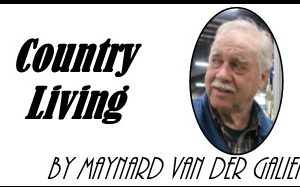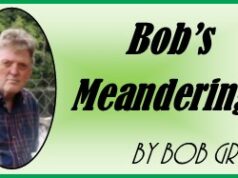I don’t listen to news talk radio and I seldom watch Question Period on television. When I do watch talk shows, I get turned off by the filler words that are used over and over. There are certain words and phrases that literrally drive me nuts. They’re overused, they’re often grammatically incorrect thanks to text speak, and sometimes they are just completely paradoxical or make no sense. But yet, people continue to use them over and over again.
Why can’t people who work in radio and television learn to speak properly? It’s bad enough when popular sports figures are interviewed. Many of these highly paid stars mumble away in a monotonous tone and can’t seem to see beyond the game and winning.
Joyce Napier, Ottawa Bureau Chief for CTV National News, is a bright and very educated woman. Her biograph says she is fluent in French, Spanish, Italian and English. But her chatter is terrible. She can’t construct a sentence without saying “you know” or “you know, I mean” or “I mean” and “I guess” and says “okay” far too often.
Why don’t the bosses at CTV tell her that it’s bad, you know, to say the words ‘You know’ too often? Better yet, don’t say them.
There are many words that are overused and misused. Basically is one such word. I sometimes hear it twice in one sentence. Basically, originally meant “essentially” or “fundamentally” but is now used as general verbal filler.
Hopefully is another word that is also used far too often and incorrectly. “Hopefully the weather will be nice this weekend.” Say, “I hope the weather will be nice this weekend.”
Other misused words include: I guess, actually, essentially, totally, really, literally, honestly, really, unique, awesome, incredible and absolutely.
Try not using these words and you will see the sentence improve.
A phrase that pops up a lot is “equally as”. Something can be equally important or as important as, but not equally as important.
You’ll hear people use the phrase “This point in time.” What other point is there? There is no such thing as a point in time. Time moves along all the time. Say, at this time or at this point.
Have you noticed that some politicians like to say “they are working very hard” at something. Chrystia Freeland, Canada’s Minister of Foreign Affairs, uses that term when referring to trade talks. She is always working very hard. Prime Minister Justin Trudeau tells us he is working very hard. And his government is working very hard.
I saved this odd quote from the PM.: “Like I said, I’ve been working very hard to try and piece it together and even when the editorial came out at the time, I was fairly confident, I was very confident I hadn’t acted in a way that I felt was in any way inappropriate.”
So, like honestly, I mean, how did Trudeau work very hard at piecing it together? Was he thinking about it more? Did he start earlier in the mornings? Skip lunch? Stay up later before going to bed?
Maybe Trudeau and Freeland could rub their eyes and yawn when they’re telling us that they work very hard. They always look so well rested and relaxed.
Okay, I guess I’ll end on that note. I do want you to know that I work very hard writing these columns about incredible events and awesome people. Do I enjoy my work?
Absolutely!





![Kenopic/Smith Auction [Paid Ad]](https://whitewaternews.ca/wp-content/uploads/2018/10/advertising-100x75.jpeg)

